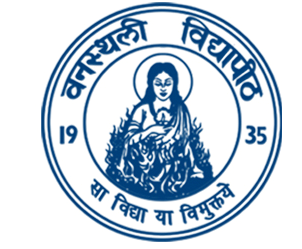
Banasthali Aptitude Test 2020 Syllabus - Physics, Chemistry, Mathematics, and Biology
The renowned Banasthali University conducts the Aptitude Test for admission to its UG and PG programme. It is an only-women university; therefore, only female candidates are eligible to apply for the exam. The exam is scheduled to be held in the first week of June 2020.
|
Banasthali University Aptitude Test 2020 |
First week of June 2020 |
Scroll left or right to view full table
Here in the article, we are providing the details of the syllabus for the aptitude test. Candidates can check out the same and start their preparation. Along with the syllabus, it is also important to understand the exam pattern too. So, here are the details for both.
Banasthali Aptitude Test 2020 Exam Pattern
Here we will discuss the exam pattern for B.Tech./ B.Pharm. Courses. Multiple Choice Questions (MCQs) are asked in the exam from the following sections:
|
Sections |
Subjects |
Number of Questions |
Duration |
|
Section A |
Physics & Chemistry |
40 |
60 minutes |
|
Section B |
Mathematics/ Biology |
40 |
60 minutes |
|
Section C |
Logical Reasoning |
20 |
30 minutes |
|
TOTAL |
|
100 |
2 hours 30 minutes |
Scroll left or right to view full table
Maximum Marks per question - 1
Negative Marking - 1/4th marks allotted to the question are deducted for every wrong answer.
Banasthali Aptitude Test 2020 Syllabus
Section A: Physics & Chemistry
Physics - Units and Measurement, Errors in measurement, Kinematics, Work, Energy and Power, Laws of Motion, Rolling friction, Gravitation and Satellite, Rotational Motion, Oscillations and Waves, Mechanics of Solids and Fluids, Heat and Thermodynamics, Electrostatics, Coulomb’s Law, Heating and Magnetic Effect of Current, Hysteresis curve, Current Electricity, Optics, Electromagnetic Induction and Alternating Currents, Semiconductor Physics, Nuclear Reactor, Atomic and Nuclear Physics.
Chemistry - State of Matter, Atomic Structure, Bohr Model of Hydrogen, Chemical Bonding and Molecular Structure, Molecular Orbital Theory, Chemical Thermodynamics, First Law of Thermodynamics, Solutions, Colligative Properties of Dilute Solutions, Equilibrium, Chemical Kinetics, Redox Reactions and Electrochemistry, Classification of Elements and Periodicity in Properties, oxidation states and chemical reactivity, s-block elements (Group-1 and 2 elements), p-block elements (Group-13 to Group 18 elements), d- and f- block elements, Transition Elements, coordination compounds, isomerism, nomenclature, basic principles of organic chemistry, electrometric effect, hydrocarbons, organic compounds containing Oxygen, Carboxylic Acids, organic compounds containing Halogens, organic compounds containing Nitrogen, Stereochemistry, Polymers, and Bio-molecules.
Section B: Mathematics/ Biology
Mathematics (for B.Tech.) - Algebra, Complex Numbers, Theory of Quadratic Equations, Trigonometry, Matrices and Determinants, Linear Inequalities, Two-dimensional coordinate geometry, Conic sections, Three-dimensional coordinate geometry, Integral Calculus, Differential calculus, Maxima and Minima of a Function, Vectors, Ordinary Differential Equations, Statistics, Measure of Dispersions, Probability, and Linear Programming.
Biology (for B.Pharm.) - Living World & Diversity of Life, Cell and Cell Division, Cell Cycle, Genetics, Mendel’s Laws of Inheritance, Morphology of Plants and Animals, Structure and of Tissues, Physiology of Plants, Photosynthesis, Physiology of Animals, Ecology and Environment, Reproduction, Global Warming, Growth and Development, Biology in Human Welfare.
Section C: Logical Reasoning
Verbal Reasoning - Classification, Analogy, Logical Deduction, Series Completion, Chart Logic.
Non-Verbal Reasoning - Pattern Recognition, Rule Detection, Analysis.

0 Comments